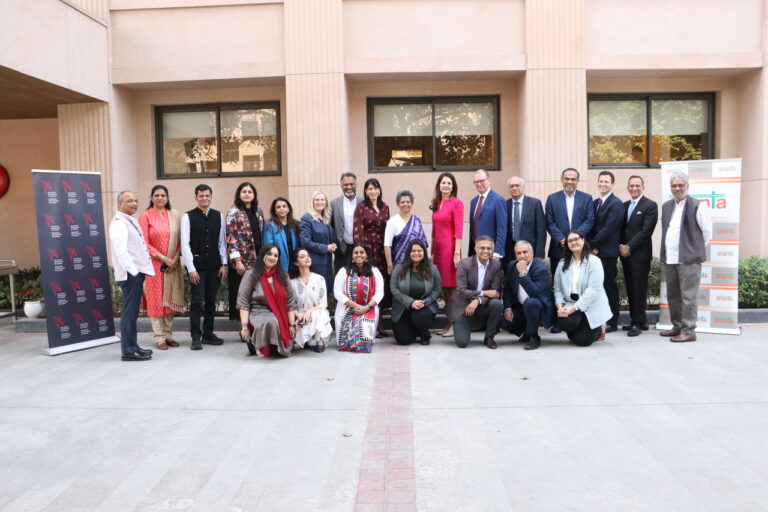India-Canada Dialogue 17 February 2025, New Delhi
Introduction
India and Canada share a long-standing relationship built on robust economic ties, educational exchanges, and strong people-to-people connections. However, recent diplomatic tensions have highlighted the need for a structured approach to rebuilding trust and strengthening bilateral cooperation. This summary report is based on the India-Canada Track II Dialogue, convened jointly by Ananta Aspen Centre and Asia Pacific Foundation of Canada, which brought together high-level representatives from academia, business, think tanks, and the media. Gathering in New Delhi, participants set out to identify the main obstacles to cooperation and to chart pragmatic, forward-looking paths for revitalizing the bilateral relationship.
India-Canada in 2025: Building Bridges for a New Era in Bilateral Ties
● The dialogue began with welcoming remarks emphasizing the importance of stability in India-Canada relations.
● The political turbulence between the two nations was acknowledged, and the need for a structured reset was highlighted.
● Civil society was recognized as crucial in fostering trust and cooperation.
● The significance of strong people-to-people ties was emphasized.
● The historical foundation of India-Canada relations was discussed.
● The necessity of moving beyond political differences to build sustainable collaborations was noted.
● The importance of mutual respect in diplomacy was reiterated.
● Potential avenues for policy collaboration were introduced.
● The role of non-governmental organizations in strengthening bilateral ties was acknowledged.
● The need for pragmatic solutions over ideological conflicts was underlined.
Promises and Perils of New and Emerging Technologies: Fostering Innovation and Combating Cyber Threats
● The importance of resuming FTA negotiations was underscored.
● Trade, investment, and innovation were identified as key drivers of mutual benefits.
● Technology, energy, and infrastructure were highlighted as priority sectors.
● Canada’s role as a major trading partner for India was analyzed.
● The importance of sectoral cooperation in digital transformation and renewable energy was noted.
● Potential investment in AI, healthcare, and logistics was explored.
● The need for structured engagement between business communities was emphasized.
● Challenges such as trade barriers and protectionist policies were discussed.
● Bilateral trade mechanisms to reduce dependency on third-party markets were considered.
● Enhancing supply chain resilience through collaborative ventures was proposed.
Indo-Pacific: Exploring Convergences in an Evolving Geopolitical Space
● Security concerns over extremism and intelligence-sharing were discussed.
● The challenges of extremism, transnational crime, and foreign interference were
● examined, with a call for stricter measures to address them.
● The need for a bilateral security framework to address mutual concerns was highlighted.
● Counterterrorism collaboration between security agencies was recommended.
● Intelligence-sharing mechanisms were proposed to counter organized crime.
● A proposal to hold regular Track 1.5 and Track 2 dialogues was discussed.
● Strengthening cybersecurity measures in collaboration was considered.
● The role of diaspora communities in influencing security policies was examined.
● The necessity of maintaining diplomatic balance while addressing security threats was emphasized.
● Confidence-building measures to improve trust in security cooperation were proposed.
Unlocking New Horizons in the Bilateral Economic Relationship
● The role of educational institutions in strengthening bilateral ties was discussed.
● Balanced visa policies for Indian students and professionals were recommended.
● The importance of student exchange programs in fostering long-term engagement was emphasized.
● Cultural diplomacy was identified as a tool for enhancing bilateral understanding.
● Addressing misinformation and shaping constructive media narratives were key discussion points.
● The role of academic partnerships in knowledge sharing was highlighted.
● A need for increased government support for educational collaborations was mentioned.
● The growing number of Indian students in Canada and their impact on bilateral relations were analyzed.
● Strengthening Indo-Canadian alumni networks for knowledge exchange was proposed.
● Public outreach initiatives to improve mutual perceptions were recommended.
Key Challenges
● Political Strains: The political relationship has suffered due to allegations of foreign interference, diplomatic expulsions, and concerns over national security.
● Trade and Economic Barriers: The suspension of the free trade agreement (FTA) negotiations has stalled potential economic benefits for both nations.
● Public Perception: Misinformation and media narratives have contributed to declining public trust in both nations.
Opportunities for Engagement
● Economic Cooperation: Resuming FTA discussions and expanding trade in critical sectors such as technology, pharmaceuticals, and green energy.
● Educational and Research Partnerships: Strengthening collaboration between universities, promoting student exchanges, research collaborations, and enhancing visa policies.
● Security and Strategic Dialogue: Establishing formal mechanisms for security cooperation to address concerns over extremism and organized crime.
● Multilateral Engagement: Leveraging platforms such as the G20, Indo-Pacific strategies, and development banks to foster collaboration.
Policy Recommendations Rebuilding Political Trust
● Initiate high-level diplomatic engagements post-elections in both countries.
● Resume ambassadorial appointments to restore full diplomatic representation.
● Establish a bilateral working group to address concerns on foreign interference. Strengthening Economic Ties
● Resume negotiations on a partial trade agreement to ensure gradual progress.
● Encourage sector-specific investments, particularly in AI, renewable energy, and critical minerals.
● Promote business-to-business dialogues to navigate trade barriers.
Enhancing Security Cooperation
● Develop a joint framework for countering extremist financing and activities.
● Strengthen intelligence-sharing mechanisms between law enforcement agencies.
● Conduct regular Track 1.5 and Track 2 dialogues to manage geopolitical risks. Promoting People-to-People Engagement
● Expand student mobility programs and streamline visa processes for Indian students.
● Support initiatives that foster cultural exchanges and academic collaborations.
● Encourage media transparency to counter misinformation and improve narratives around the bilateral relationship.
Conclusion
India and Canada have deep-rooted connections that transcend political tensions. While challenges persist, strategic interventions in trade, security, and education can pave the way for a stronger, more resilient partnership. Both nations can work towards a stable and prosperous relationship by focusing on mutual interests and pragmatic solutions.



























